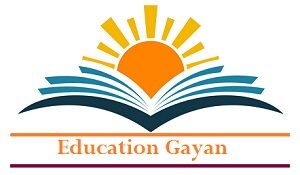Children must be taught how to think, not what to think.– Margaret Mead
A school counselor needs a lot of patience but the career is a rewarding one. With your help and support, students can navigate different problems with confidence.Learners, especially the young adults need guidance and care, particularly when it comes to dealing with academic, personal, parental as well as social compressions. School counselors support schoolchildren at all levels, from elementary school to college.In this whole process, assessments are the creative counseling techniques for school counselors.
Typically, counselling is given at several levels. Here are some of the widely accepted definitions of counselling —
“Counselling is a series of direct contacts with the individual which aims to offer him assistance in changing his attitudes and behaviour.” – Carl Rogers
“The term counselling covers all types of two personal situations in which one person, the client is helped to adjust more effectively to himself and his environment.” – Robinson
“Consultation, mutual interchange of opinion, deliberating together.” – The Websters
So…how do school counselors test their students? What kind of assessments are out there? We will have a look into these various kinds of assessments.
Different kinds of assessment are being used by the school counsellors to obtain information that describes a student’s behavior.The work activities of counselors are largely indistinguishable. They usually work principally in educational settings with teachers, administrators, and social workers, and limit their work with children to assessment.Assessment basically involves collecting samples of behavior, making inferences.
Assessment Procedures
It is important to understand testing and assessment are not the same. The precise assessment measures used by school counsellors differ somewhat as the purpose of the situation, the learner’s characteristics, and the reason for seeking services. Essential steps in counseling are – Assessing the learner’s problem(s), theorizing and defining the learner’s problem(s), choosing and applying effective action(s) and assessing the counseling.
Assessment can be therapeutic. There are certain types of assessment tools —
- Standardized vs. Non-standardized
- Specific vs. Group
- Objective vs. Subjective
- Rapidity vs. Power
- Reasoning vs. Affective
- Verbal vs. Nonverbal
Needless to say, assessment and diagnosis activities are the important aspects of counseling sessions. These aspects include collecting data about students, using interviews and annotations, problem identification and analysis, and using objective personality records, individual intelligence examinations, vocational interest inventories, and aptitude assessments.
One more comparatively unique assessment practice of school counsellors is the self-administering or self-scoring or self-interpreting test. Pioneered by Holland with his SDS, a vocational interest record, the test is planned to deliver counsellors with the information they need without concerning a fairly high-priced psychological specialist.
The interview is the assessment procedure most extensively used by school counsellors. This is a normal interview with the student, after which they report eloquent information having an almost identified level of dependability. Furthermore, most counsellors pride themselves on being skilled interviewers.
Assessment Skills Required By School Counsellors Roles
Schafer and Mufson (1993) systematized assessment skills into three major areas:
- Doing pupil assessment
- Doing program evaluation, and
- Using basic research
Doing Pupil Assessment
This includes the assessment systems and programs, test administration and scoring, test reporting and interpretation, test evaluation and selection, design, analysis, and improvement in instrument development. It also includes formal and informal approaches of assessment, the administrative uses of assessment and integrities of using assessments.
Doing Program Evaluation
This comprises of needs assessment, formative and collective evaluation, sources of evaluation research invalidity (instrumental, internal, and external),selecting evaluation designs, choices of and computational procedures for evocative and inferential statistics. Additionally, it also embraces writing assessment proposals and reports,broadcasting information and research integrities.
Using Basic Research
Using basic research involves finding and gaining applicable research reports, reading and summarizing research reports, estimating the validity of instruments with research designs and expectations of common inferential statistical trials.
On the job, school counselors do these works:
- Listen to apprentices’ apprehensions about academic, emotional or social difficulties.
- Support students process their complications and plan goals withan action
- Mediate struggle between students and teachers
- Simplify drug as well as alcohol prevention plans
- Establish peer counseling programs
- Denote learners to psychologists and other mental health resources, if required
- Work on academic boards to advance learning circumstances
- Forming a relationship of trust and respect with students
- Encouraging learners to talk about their emotional state
- Empathizing with the student’s problems, but stimulating them when essential
- Maintaining confidential records
You can get a specific details through a full psychology job descriptions to get a sneak peek on such skills too. School counsellors support students to discuss their problems and feelings in a private environment. People, especially the young adults may want counselling for numerous reasons. Relationship problems, the death of a precious one, to progress the way they deal with everyday life, deal with academic pressure and many more.
What do you need to do to become a school counsellor?
You can get into this job through:
- A university course
- A college course
- Training with a counselling organization
- Earning an online certificate course to become a school counsellor
- Strong communication skills
- Excellent interpersonal skills
- Patience
- Problem-solving aptitudes
Making a career in counseling requires a significant amount of training with the online certificate course to become a school counsellor. However, practicing licenses or certificates vary by state. It is a profession with a low-stress level, respectable work-life balance with solid prospects to expand, get promoted and earn a higher salary. The employment of school and career counselors is projected to grow 8% from 2019 to 2029 that indicates the rising demand for skilled and certified school counsellors.




